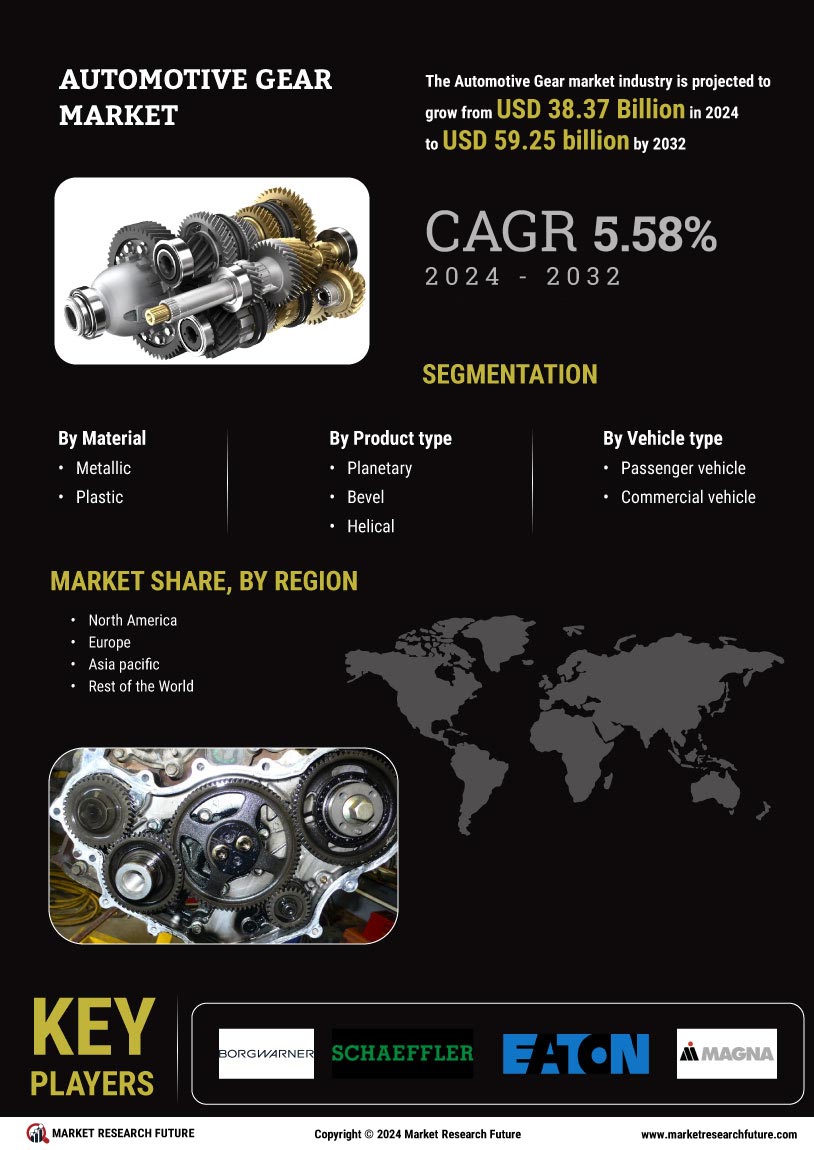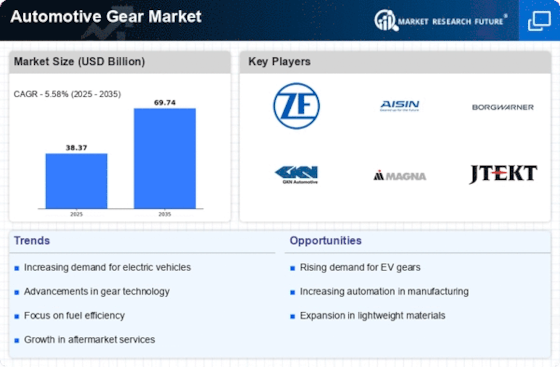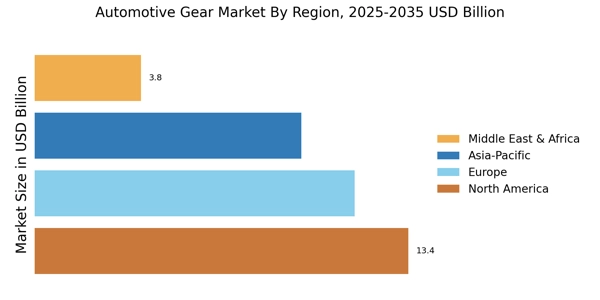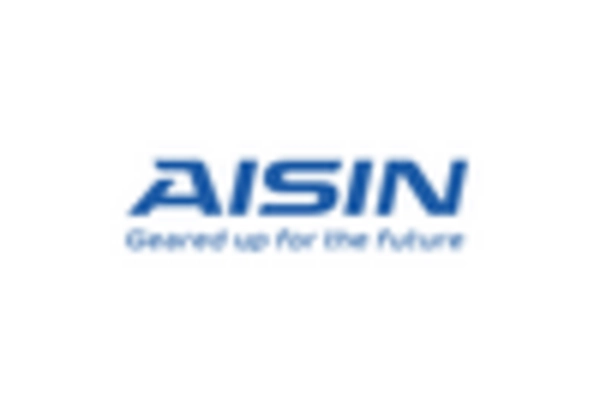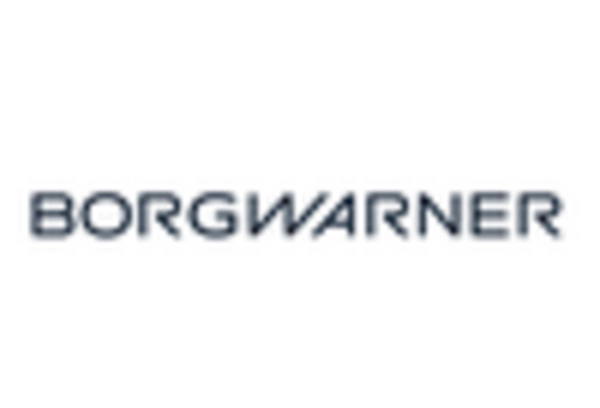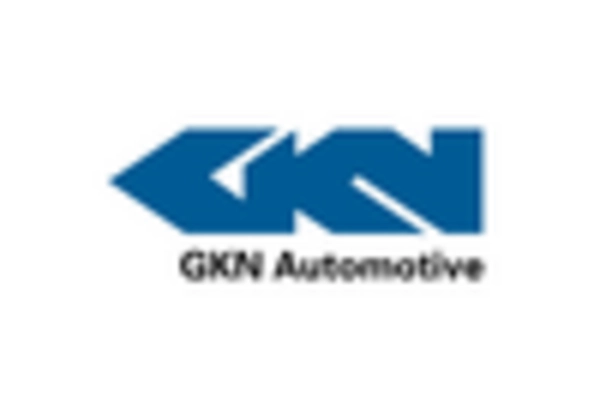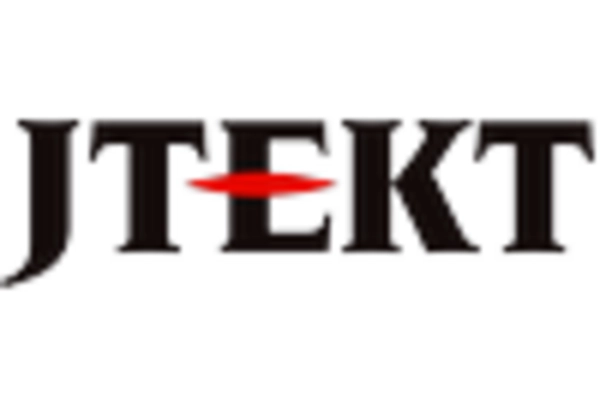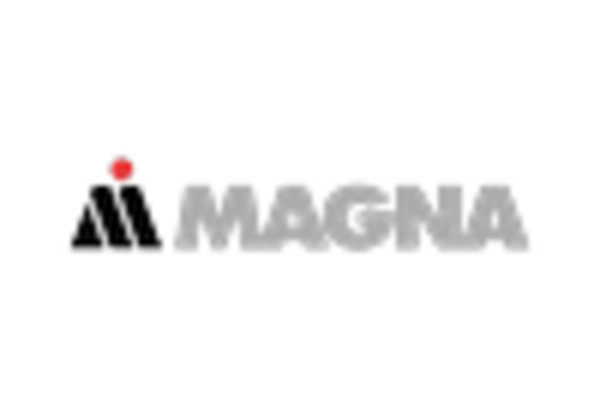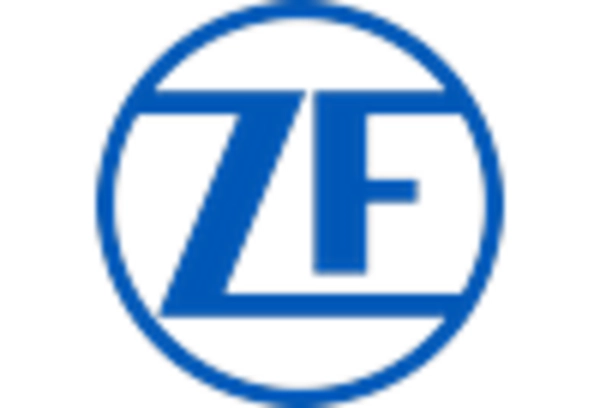Rising Demand for Fuel Efficiency
The Automotive Gear Market experiences a notable surge in demand for fuel-efficient vehicles. As consumers increasingly prioritize fuel economy, manufacturers are compelled to innovate and enhance gear systems. This trend is reflected in the growing adoption of advanced gear technologies, such as continuously variable transmissions (CVTs) and dual-clutch systems, which optimize engine performance. According to recent data, vehicles equipped with advanced gear systems can achieve fuel efficiency improvements of up to 20%. Consequently, the Automotive Gear Market is likely to witness substantial growth as automakers strive to meet regulatory standards and consumer expectations for lower emissions and enhanced fuel economy.
Increasing Vehicle Production Rates
The Automotive Gear Market is poised for growth due to increasing vehicle production rates across various segments. As manufacturers ramp up production to meet consumer demand, the need for high-quality gear systems becomes paramount. Data suggests that global vehicle production is expected to reach approximately 100 million units annually by 2026. This surge in production necessitates a corresponding increase in the supply of automotive gears, thereby creating opportunities for manufacturers and suppliers within the Automotive Gear Market. Additionally, the expansion of production facilities and investments in automation technologies are likely to enhance efficiency and reduce lead times.
Growth of Electric and Hybrid Vehicles
The Automotive Gear Market is significantly influenced by the rapid growth of electric and hybrid vehicles. As these vehicles gain traction, the demand for specialized gear systems tailored to electric drivetrains is on the rise. Electric vehicles (EVs) often utilize single-speed transmissions, which differ from traditional multi-speed systems. This shift necessitates the development of new gear technologies that can efficiently handle the unique torque characteristics of electric motors. Market data indicates that the electric vehicle segment is projected to account for over 30% of total vehicle sales by 2030, thereby driving innovation within the Automotive Gear Market.
Technological Innovations in Gear Design
Technological innovations play a pivotal role in shaping the Automotive Gear Market. Advancements in materials science and manufacturing processes have led to the development of lighter, stronger, and more efficient gear systems. For instance, the introduction of composite materials and advanced heat treatment techniques enhances the durability and performance of gears. Furthermore, the integration of computer-aided design (CAD) and simulation tools allows for more precise engineering of gear systems, resulting in improved performance metrics. As the industry continues to evolve, these innovations are expected to propel the Automotive Gear Market forward, fostering competition and driving down costs.
Regulatory Compliance and Safety Standards
Regulatory compliance and safety standards significantly impact the Automotive Gear Market. Governments worldwide are implementing stringent regulations aimed at reducing vehicle emissions and enhancing safety features. These regulations often necessitate the adoption of advanced gear technologies that improve vehicle performance and safety. For instance, the implementation of electronic stability control systems and advanced driver-assistance systems (ADAS) requires precise gear mechanisms to function effectively. As a result, manufacturers are increasingly investing in research and development to create gear systems that not only comply with regulations but also enhance overall vehicle safety. This trend is expected to drive growth within the Automotive Gear Market as companies adapt to evolving standards.
